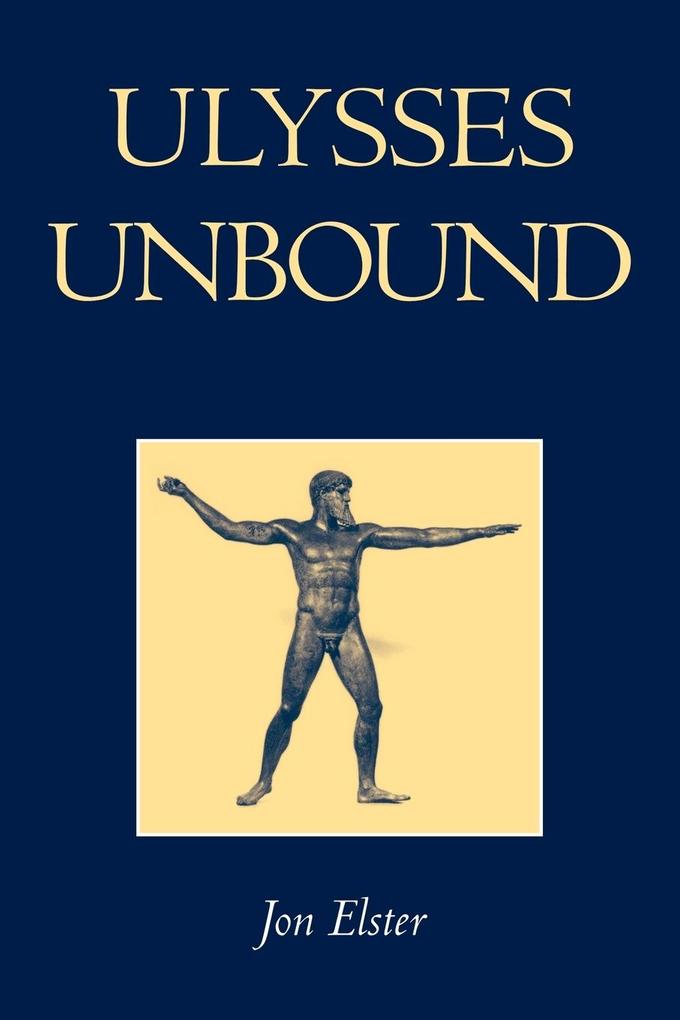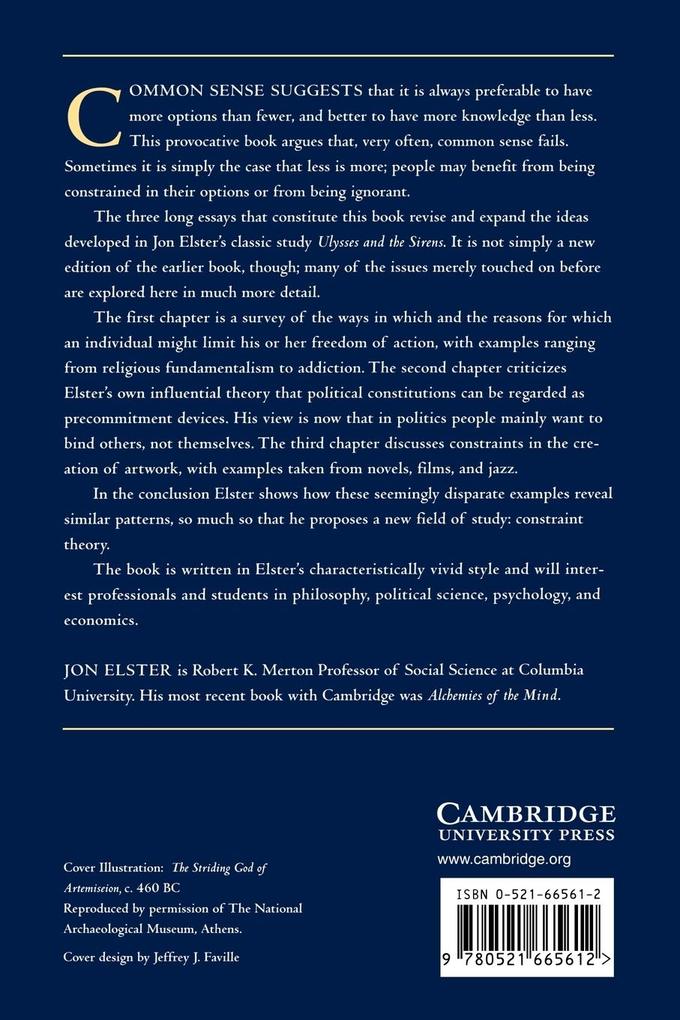This provocative book argues that, very often, people may benefit from being constrained in their options or from being ignorant.
Inhaltsverzeichnis
Preface and acknowledgments; Part I. Ulysses Revisited: How and Why People Bind Themselves: 1. Introduction: Constraint theory; 2. Passion as a reason for self-binding; 3. Time-inconsistency and discounting; 4. Time-inconsistency and strategic behavior; 5. Passion as a device for self-binding; 6. Variations on a Russian nobleman; 7. Addiction and precommitment; 8. Obstacles, objections and alternatives; Part II. Ulysses Unbound: Constitutions as Constraints: 9. Introduction; 10. Disanalogies with individual precommitment; 11. The nature and structure of constitutions; 12. Constraints on constitution-making; 13. Two levels of constitutional precommitment; 14. Self-binding in Athenian politics; 15. Interest and passion in Philadelphia and Paris; 16. Time-inconsistency, discounting and delays; 17. Omnipotence, strategic behavior and separation of powers; 18. Efficiency; 19. Obstacles and objections; 20. Ulysses unbound; Part III. Less is More: Creativity and Constraints in the Arts: 21. Introduction; 22. Daydreaming: creativity without constraints; 23. Constraints and conventions in the arts; 24. Constraints, value, and creativity; 25. Originality, authenticity, and creativity; 26. The Hays code; 27. Lucien Leuwen as an empty set; 28. Randomization in the arts; 29. Creativity and constraints in jazz; 30. Obstacles and objections; Coda; References.













